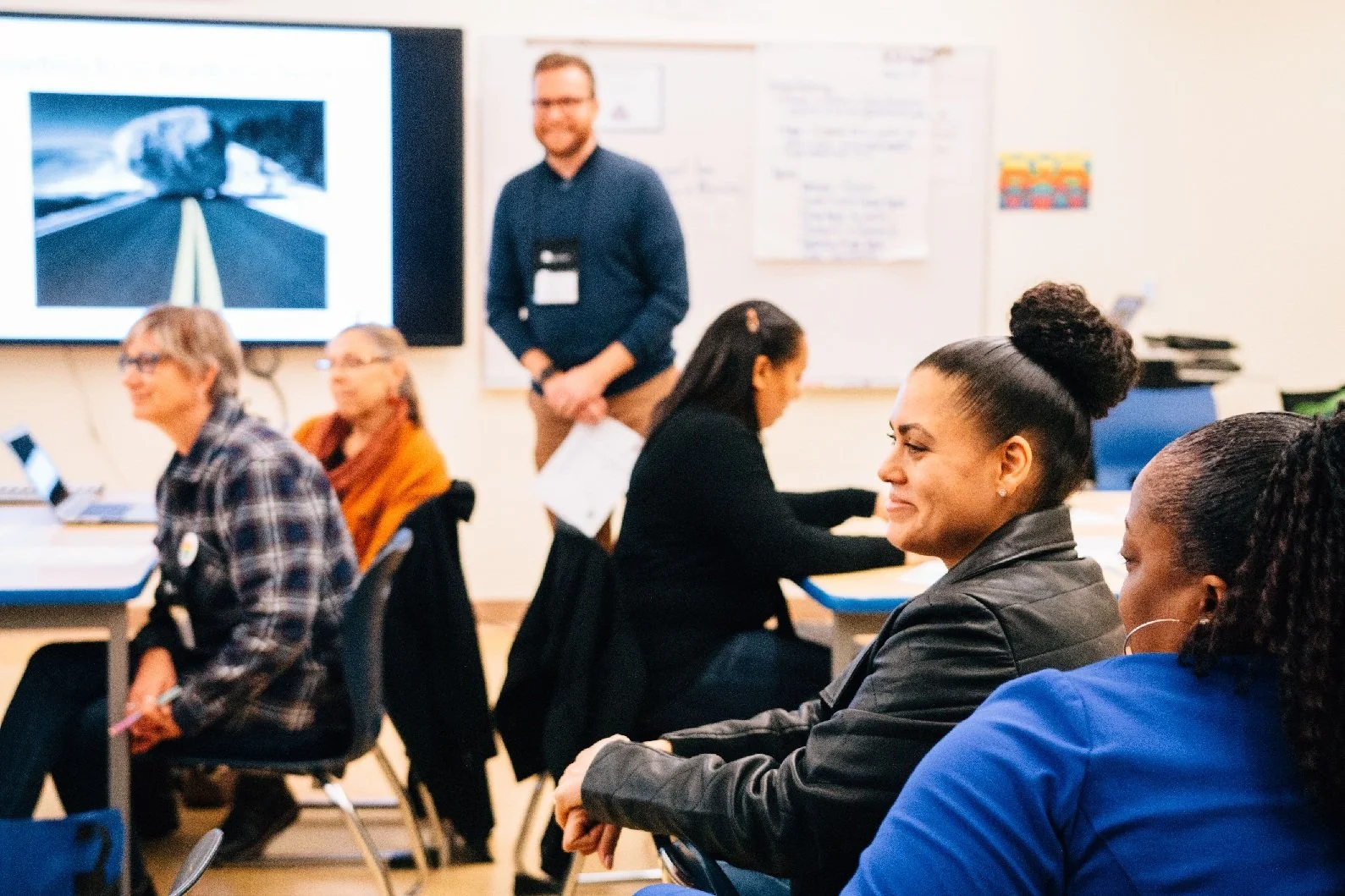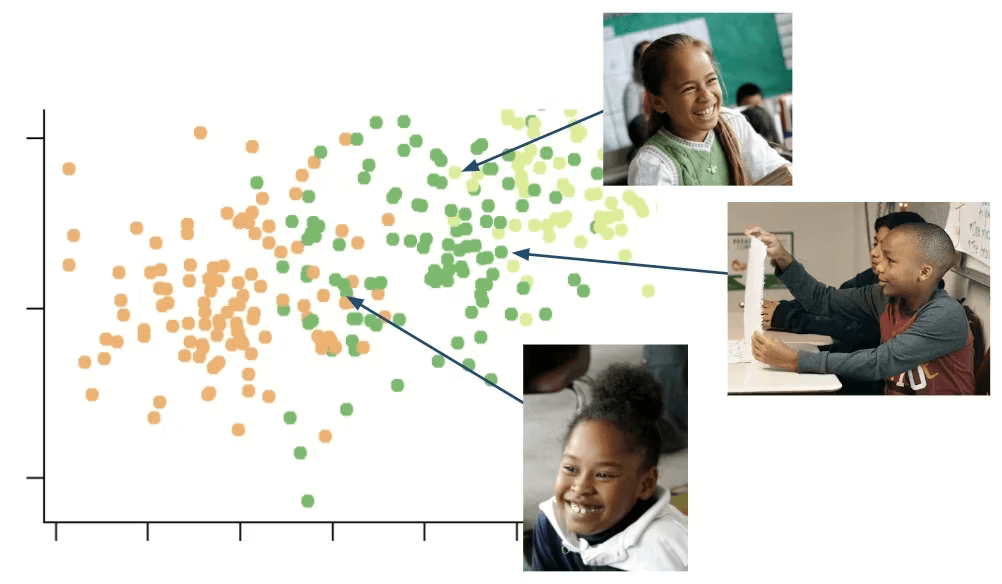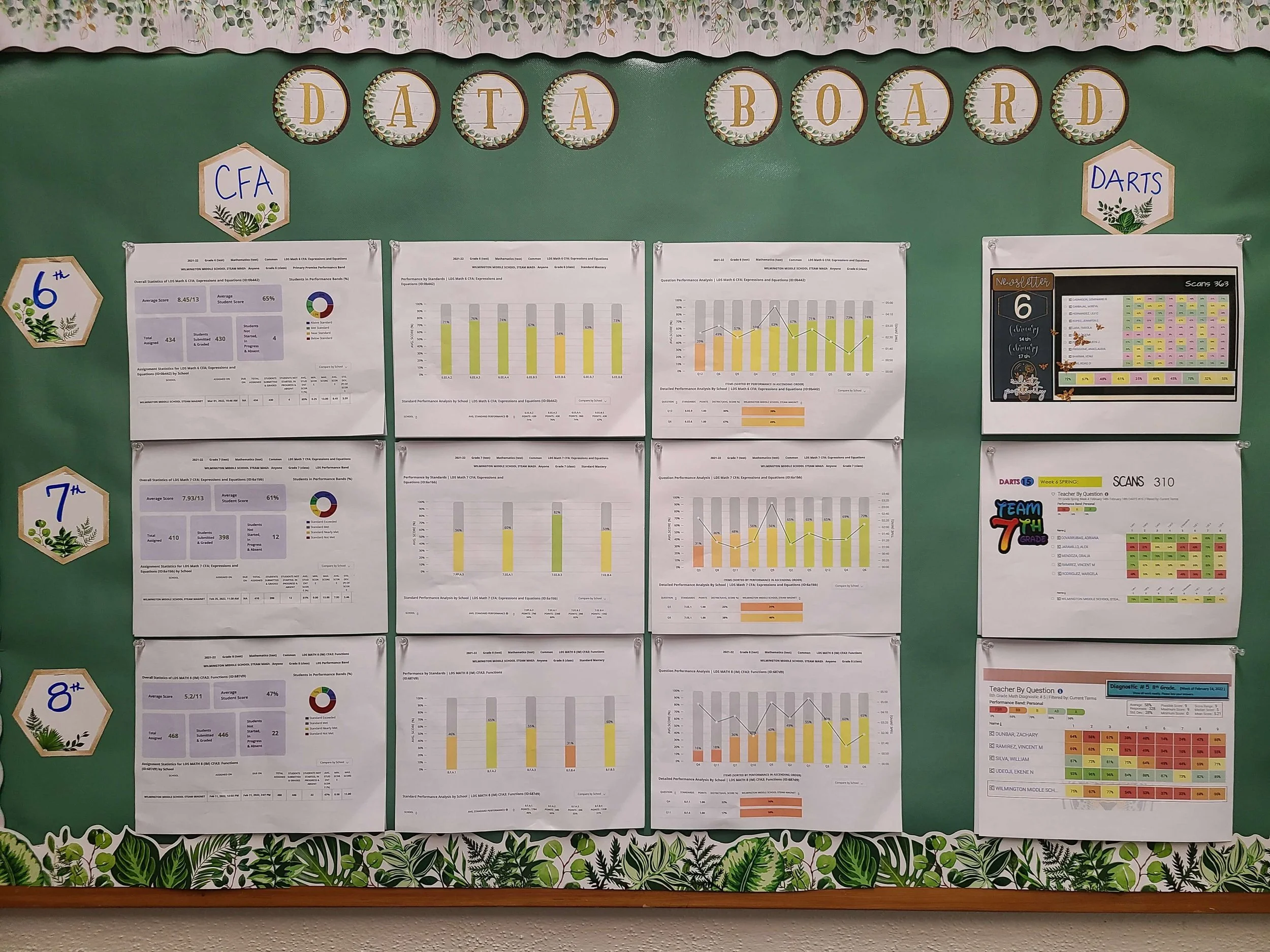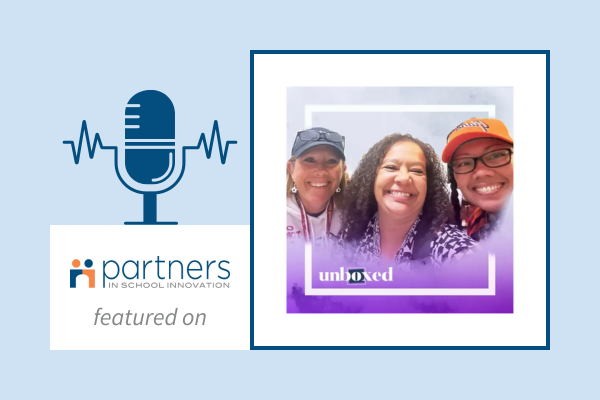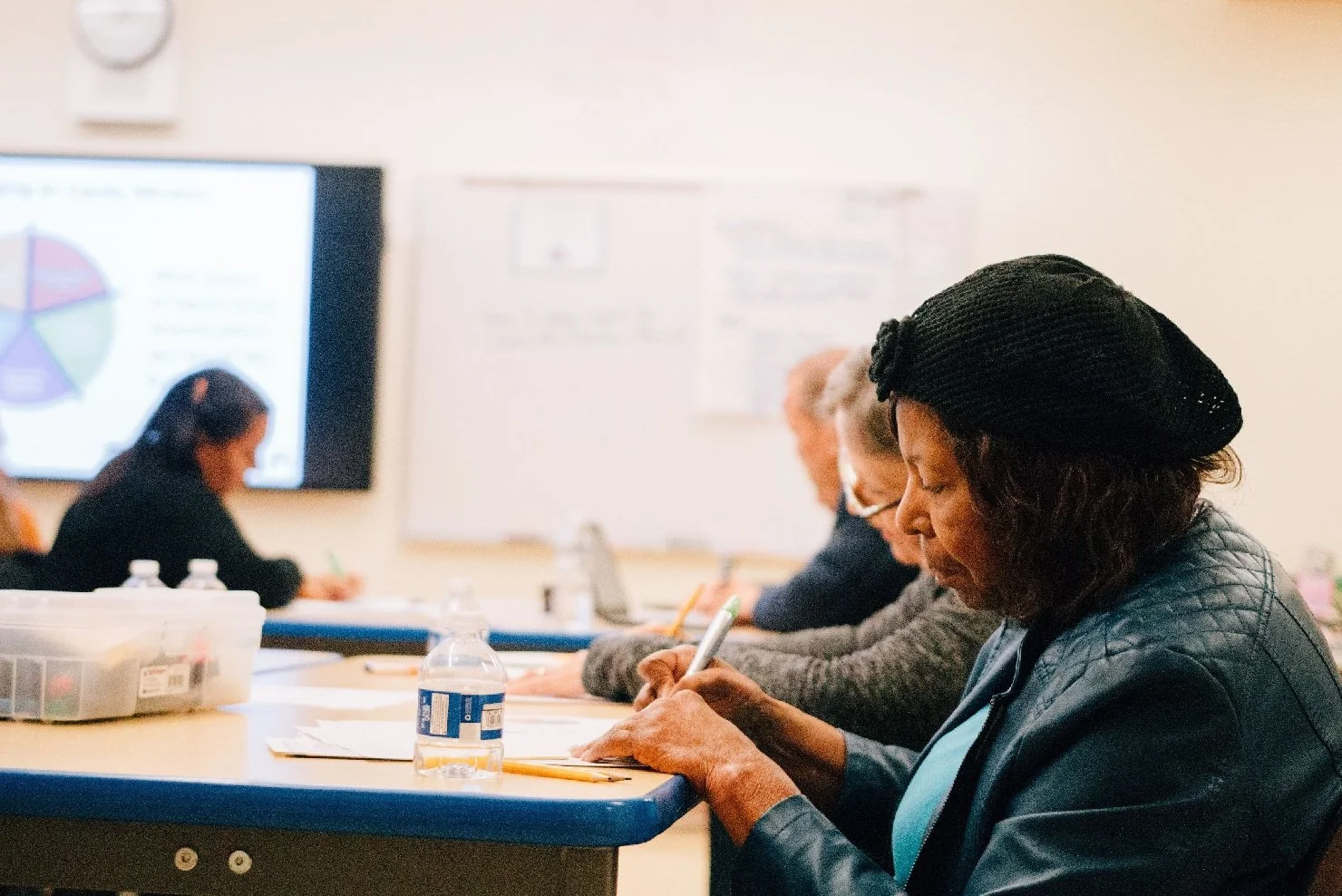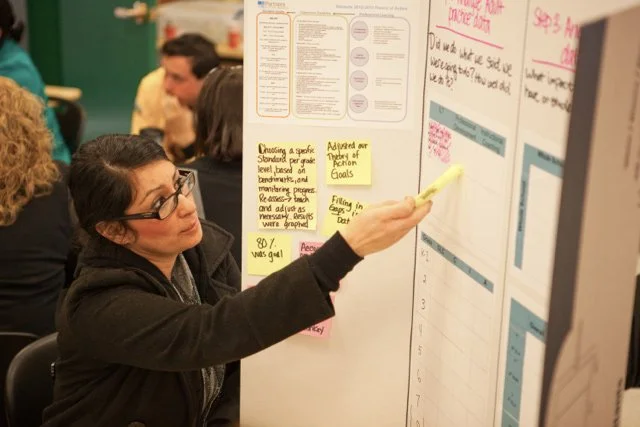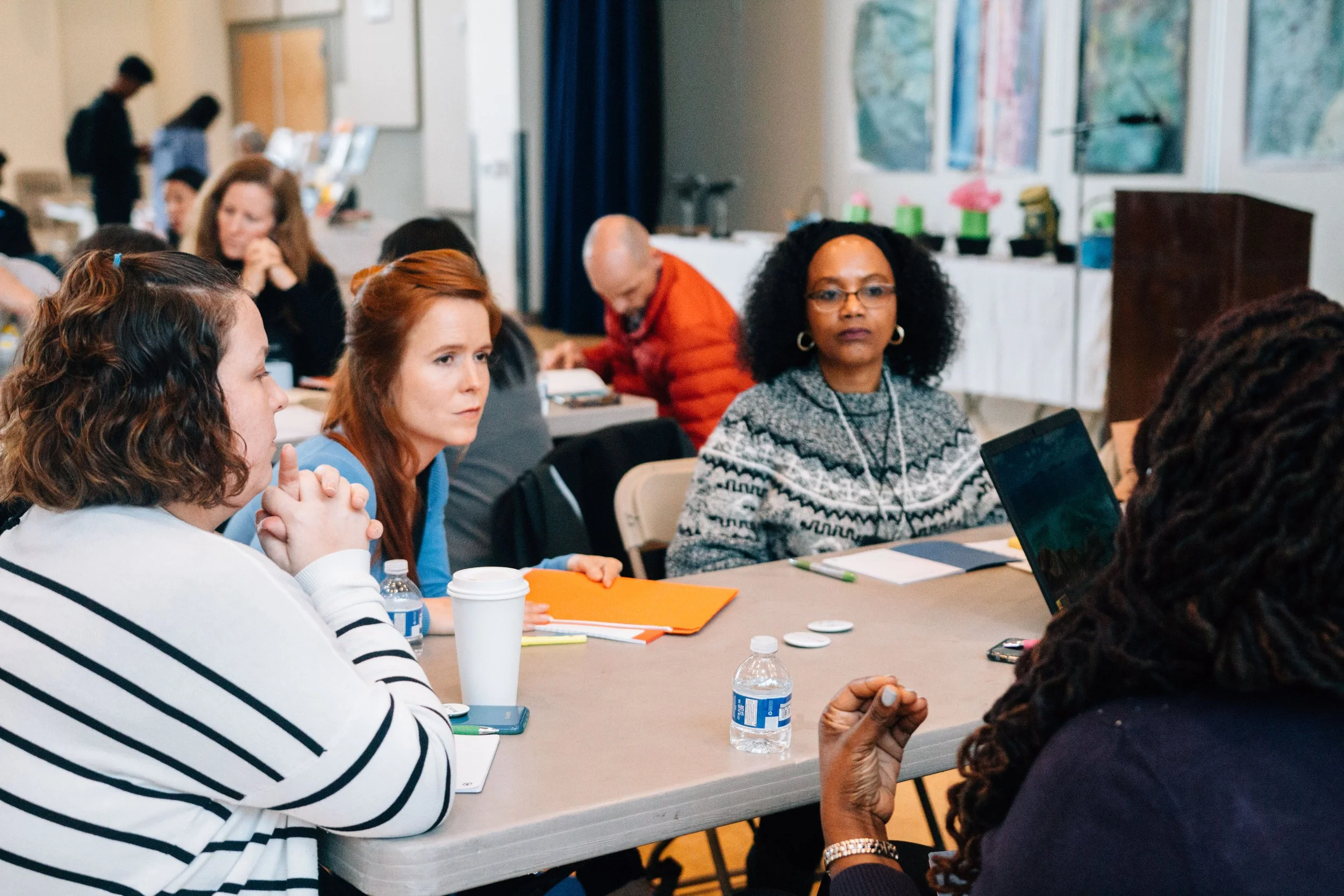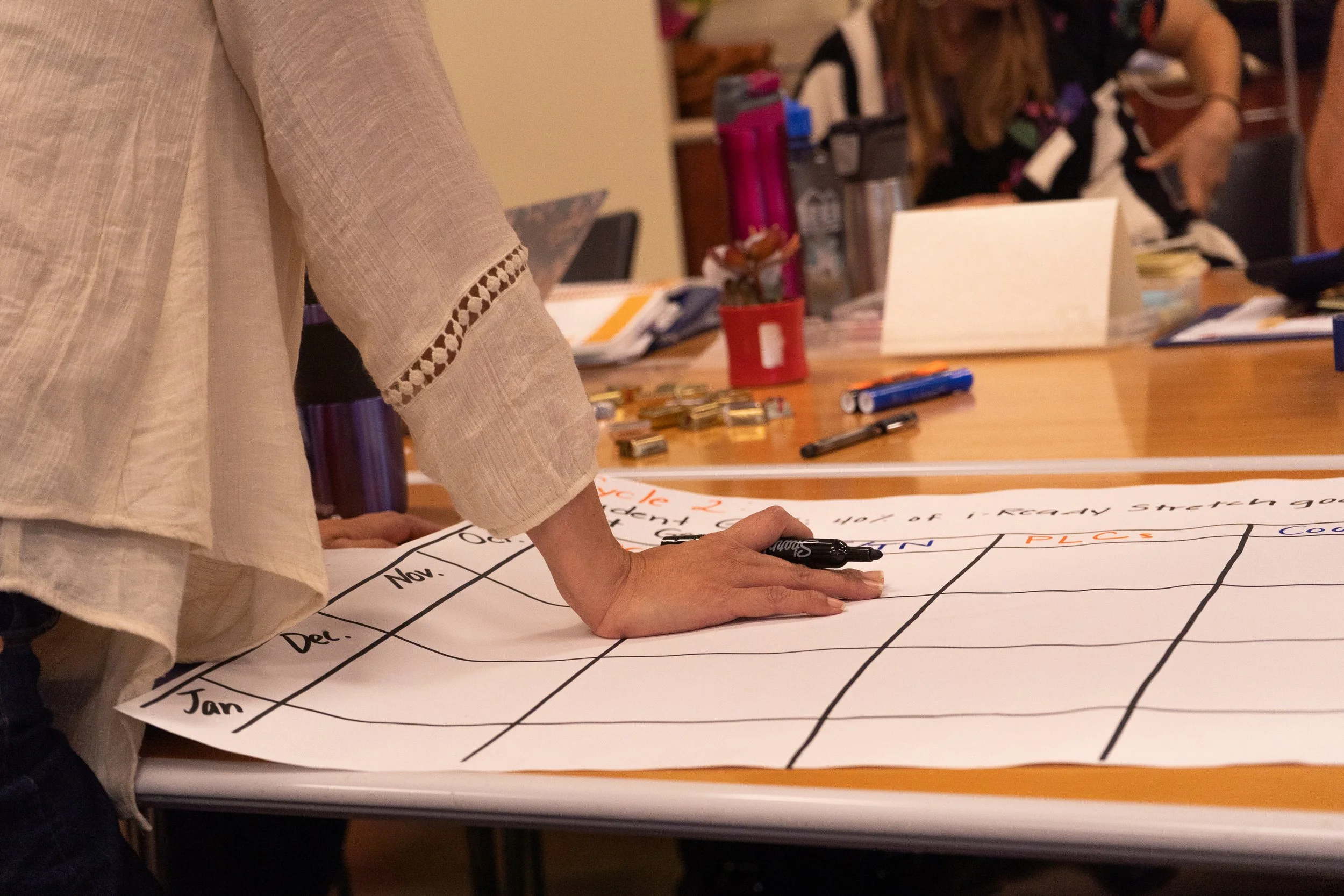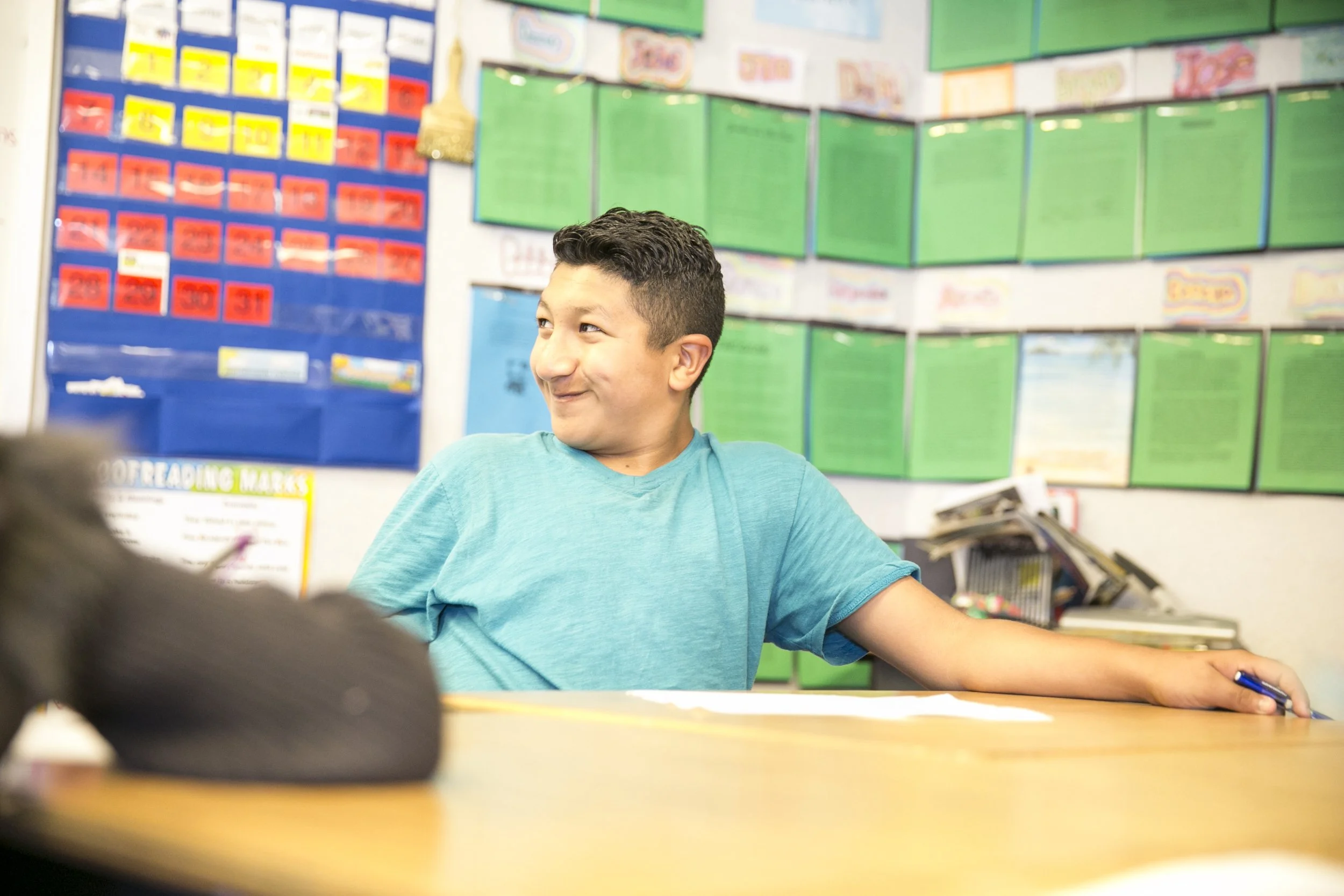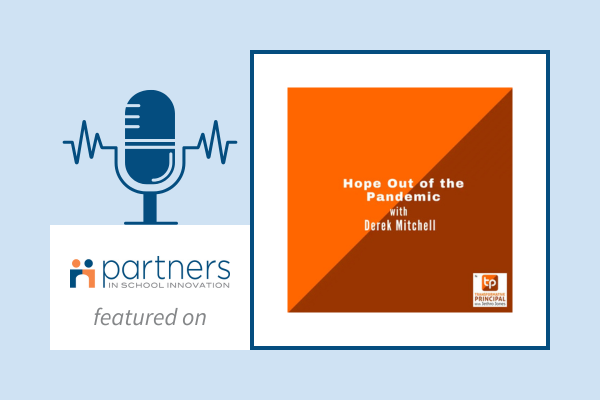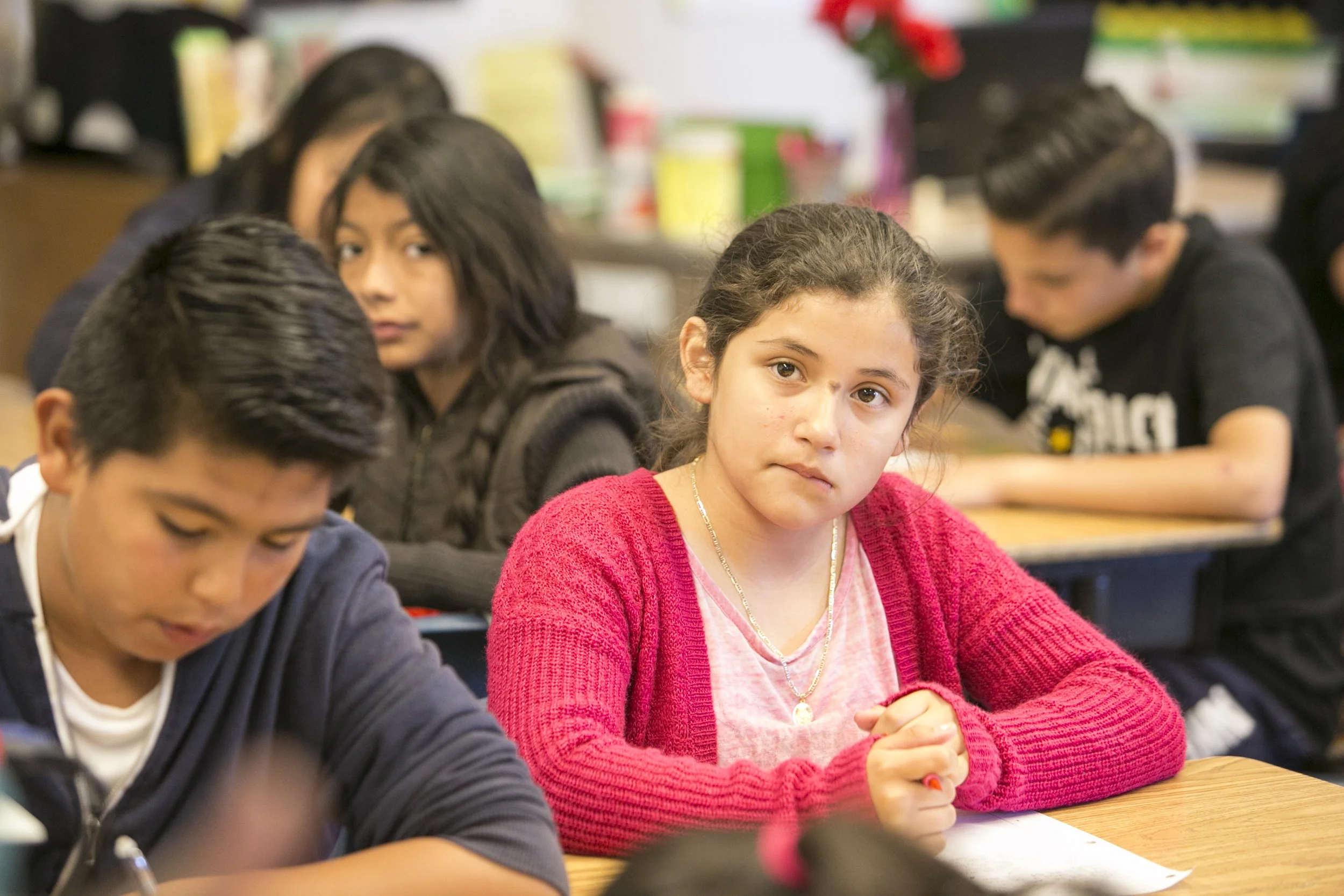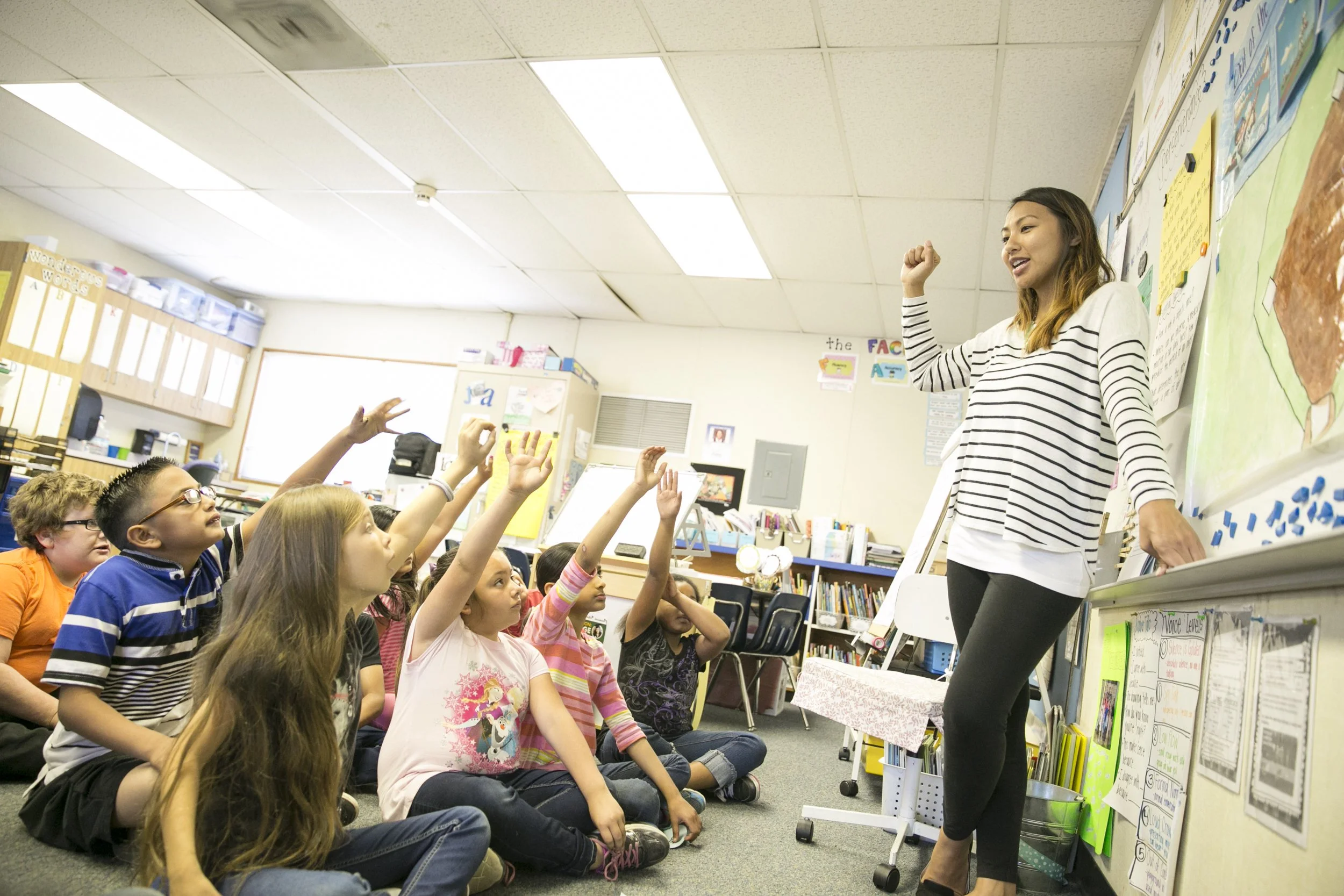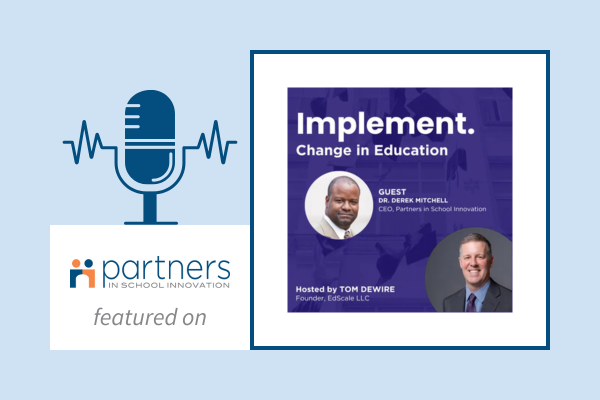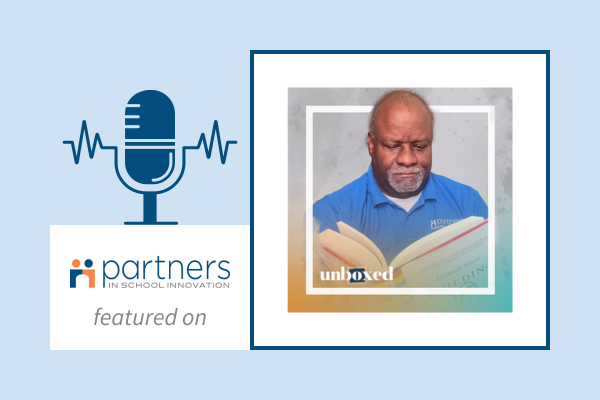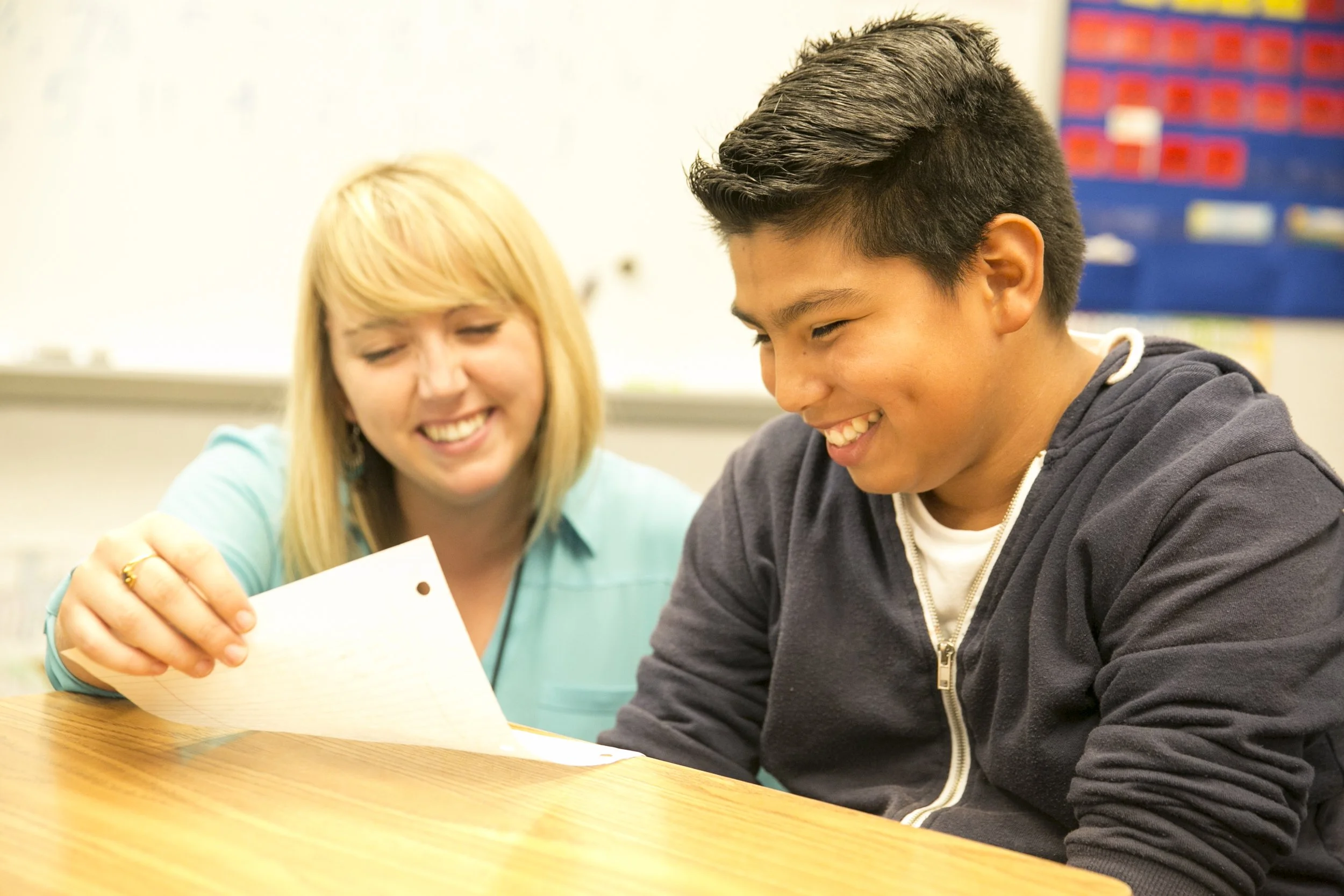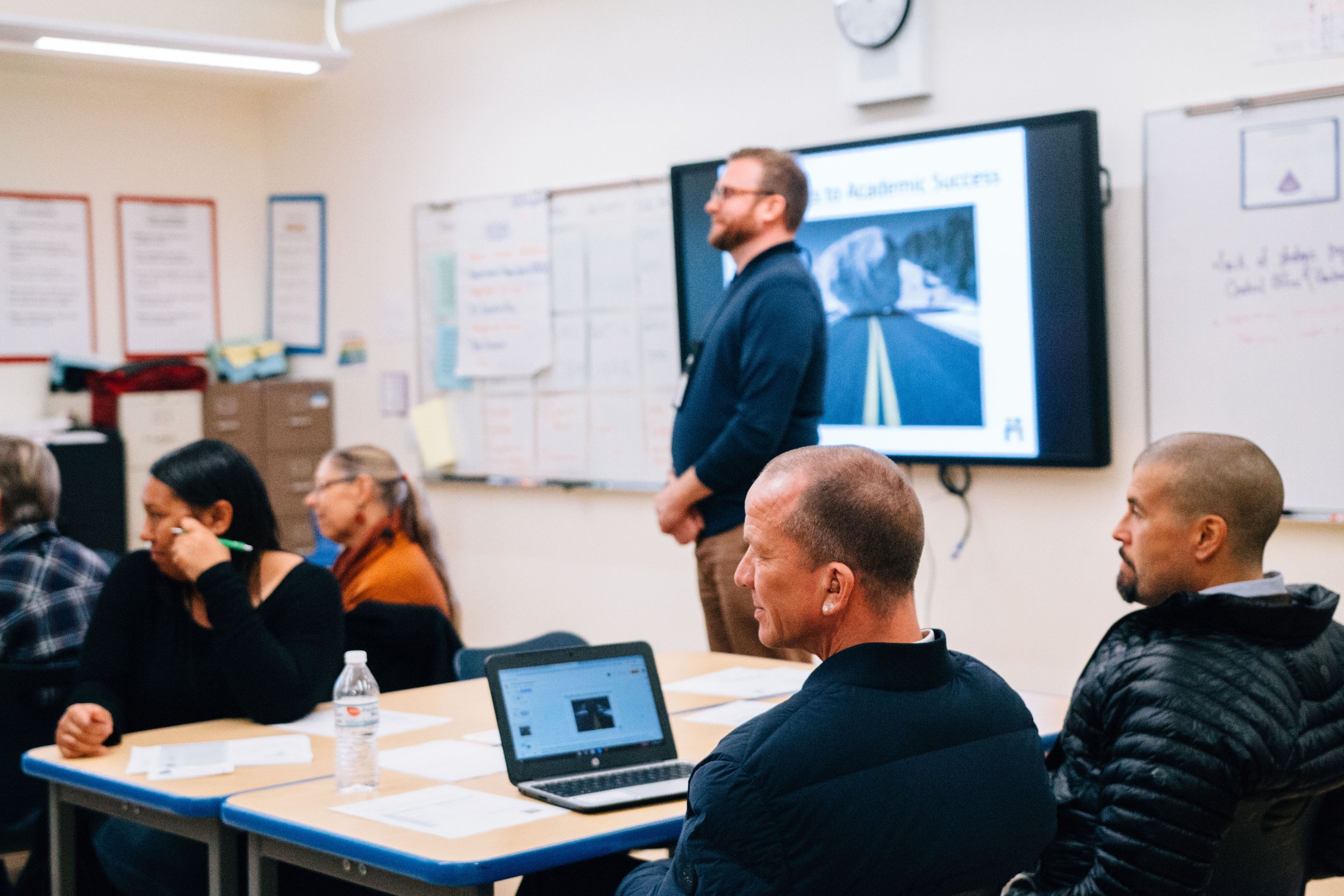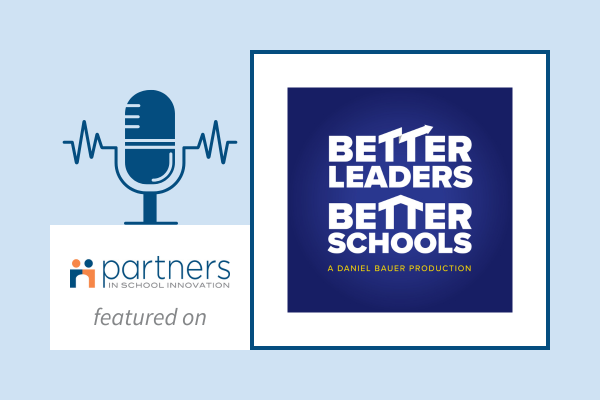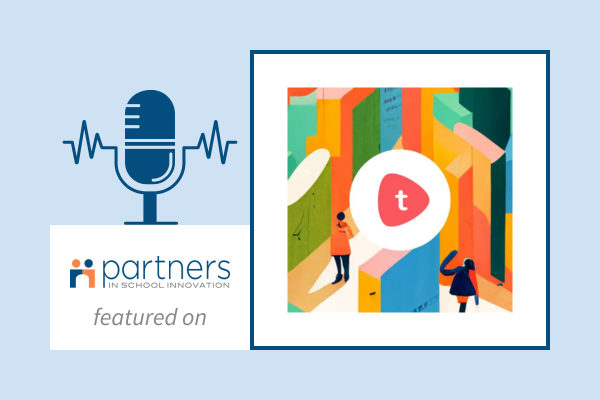Designing Professional Learning for Teachers (Using Adult Learning Science)
This blog explores a research-backed approach school leaders can use to design professional development experiences that engage adults fully and support lasting shifts in practice.
How to Find the Stories Behind Student Data
In this article, we share strategies for humanizing student data, along with real examples that show how educators can make data-driven instructional shifts that support equity and lasting improvement.
Why Traditional Student Data Conversations Can Fall Short (And What to Do Instead)
Many teams look at data, but still struggle to turn insights into improvement. This article explores why that happens and how a more human, liberatory approach to data can help educators move from conversation to meaningful action.
The Power of Shadowing Multilingual Learners: A Success Story on HTH Unboxed Podcast
In a recent episode of the High Tech High Unboxed podcast, host Alec Patton talks to Tammy Unck, Maria Smith, and Uchenna Lewis about Bernal Intermediate School's work with Partners in School Innovation on improving outcomes for multilingual learners (MLLs) using student shadowing techniques and elements of the AVID (Advancement via Individual Determination) curriculum.
Chartering School Teams: Tools and Templates to Ensure School Year Alignment
A team charter or planning template provides clarity, alignment, and focus for school teams throughout the year, whether at the beginning of the academic calendar or when starting a new initiative. See how these resources and examples can help you as a school leader establish shared purpose and norms that guide team collaboration.
The Results-Oriented Cycle of Inquiry: A Framework for Continuous Improvement in Schools
At Partners in School Innovation, the Results-Oriented Cycle of Inquiry (ROCI), a framework for school improvement that helps educators stay grounded in evidence, build stronger habits, and make continuous progress that lasts, is one of the most powerful tools we use—and coach others to use—to lead meaningful change. Learn more about what ROCI is.
A Simple Framework for Navigating Complex School Change: The Lippitt-Knoster Model
As a new school year unfolds, school leaders face significant curriculum changes. The Lippitt-Knoster Model for Managing Complex Change offers a structured approach to managing these transitions, helping leaders assess staff needs, provide targeted support, and build momentum for lasting growth.
Tapping Into Collective Vision Amidst Top-Down Changes: One Middle School’s Focus on Authentic Inquiry
When faced with implementing a new English Language Arts (ELA) curriculum, one middle school turned toward authentic inquiry to preserve teacher voice and purpose. By aligning new materials with shared values and practices, educators reclaimed ownership and deepened commitment to equitable instruction.
From Root Causes to Lasting Change in Your School: Lessons from Our Community Course
Starting the school year with strong team collaboration supports equity and shared goals. Lessons from our Community course “From Root Causes to Grassroots Action” offer practical strategies to engage staff, center student perspectives, and align teams for meaningful impact.
Structured Language Practice: Strategies for Differentiating Instruction for MLLs
Understand how to set multilingual learners (MLLs) up for success in classroom discussions, complex texts, and communicating learning effectively through structured language practice. Learn strategies like Language Dives to build fluency in academic language. This is the fourth in an explainer series about supporting and differentiating instruction for MLLs.
Transformative Leadership in Schools: Lessons from Derek Mitchell on the Transformative Principal Podcast
In this episode of Transformative Principal, Derek Mitchell explores how schools can recover and innovate post-pandemic. From addressing truancy to supporting teachers, his insights show how leaders can transform schools into equitable, community-centered spaces.
How to Create Language Objectives: Strategies for Differentiating Instruction for Multilingual Learners
Educators must go beyond content instruction to ensure that multilingual learners (MLLs) and English Language Learners (ELLs) develop the academic language skills they need to engage deeply in lessons. Discover how to create language objectives that help them express their ideas and demonstrate what they know. This is the third in an explainer series about supporting and differentiating instruction for MLLs.
Seeing and Hearing Multilingual Learners: Shadowing, Empathy Interviews, and Amplifying Student Voices
Explore in detail how to implement student shadowing and empathy interviews to best support multilingual learners (MLLs) and English Language Learners (ELLs) and highlight student voice. Learn practical tools to understand students’ lived experiences and classroom sentiments, so that you can start taking targeted steps toward change. This is the second in an explainer series about supporting and differentiating instruction for MLLs.
Empowering Educators to Drive Change: Lessons from Dr. Derek Mitchell on the Implement Change in Education Podcast
On the Implement Change in Education podcast, CEO of Partners in School Innovation Derek Mitchell highlights how coaching, reflection, and intentional leadership empower educators to drive lasting, student-centered change. Discover practical strategies for supporting teachers and leaders in creating more equitable schools.
How Reading Fuels Leadership: CEO Derek Mitchell’s Reading Habits on HTH Unboxed Podcast
In a recent mini-episode of the High Tech High Unboxed podcast, Partners in School Innovation CEO Derek Mitchell returned to talk with host Alec Patton about his daily reading practice: a routine that supports his leadership, fuels his imagination, and helps him stay rooted in reflection.
Understanding and Supporting Multilingual Learners: A Guide to Instructional Differentiation
As an educator focused on understanding and supporting multilingual learners (MLLs) and English Language Learners (ELLs), learn actionable strategies you can use, or share with peers, to differentiate instruction and help bridge the gap between intention and impact. This is the first in an explainer series about supporting and differentiating instruction for MLLs.
How the Community School Model Supports Whole Child Education
Community schools are a powerful, long-term strategy for rethinking how schools support students, families, and communities. This article breaks down the model, clears up common misconceptions, and offers practical guidance for implementation.
What Kind of Educational Leadership Transforms Schools Today?
Leading transformation in schools takes a different kind of leader. Learn how our Change Agent Framework supports educators in leading with purpose and advancing equity in lasting, practical ways.
Transformative Leadership: Derek Mitchell on Building Successful School Cultures on the Better Leaders Better Schools Podcast
School transformation begins with culture. In this podcast episode, Derek Mitchell shares how equity, listening, and shared leadership form the foundation of sustainable improvement and expands on what education leaders can do to make it real in their schools.
Leading Schools with Abundance: Shifting from Scarcity to Possibility - Derek Mitchell on the Toddle School Leaders Project Podcast
In a conversation on the Toddle School Leaders Project podcast, Dr. Derek Mitchell explores how school leaders can turn challenges into opportunities through a mindset of abundance. He elaborates on how the Skill-Will-Way framework helps educators empower students, strengthen teachers, and create thriving learning communities.

